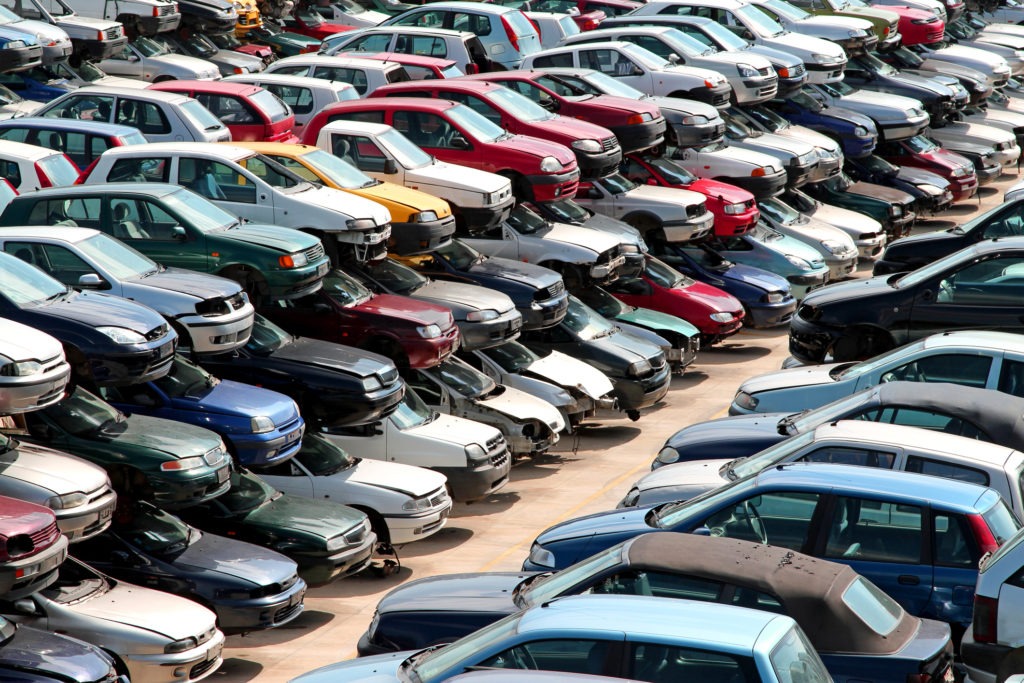Are scrappage schemes likely in a post-coronavirus market?
17 April 2020

17 April 2020
Calls are mounting for a series of scrappage schemes across Europe once the coronavirus (COVID-19) pandemic has receded enough to allow vehicle sales to resume.
Sales across the continent are dropping as countries impose lockdowns, businesses close and economic markets take a hit. Much like the economic crisis of 2008 and 2009, the automotive industry, together with politicians, is looking at ways of boosting sales in the future, with scrappage schemes a viable option.
The call is strong in Germany, where the country’s automotive authority, the VDA, has rallied together with senior politicians and vehicle manufacturers to explore a potential scheme.
The economy minister of the state of Lower Saxony, Bernd Althusmann, has called for some form of relief from the Federal Government. According to the CDU politician, Germany will ′experience a sharp economic downturn’ because of COVID-19. Lower Saxony, Bavaria and Baden-WÜrttemberg would be particularly affected because the automotive industry is a cornerstone in these federal states. In Lower Saxony, 128,000 people are employed by Volkswagen alone; another 250,000 or so jobs are directly or indirectly related to the automotive industry.
Therefore, the automotive industry, which the minister feels is key to the entire German economy, needs help to ensure it does not collapse. Two options are available – raising the financial aid for buying an electric vehicle (EV) or introducing a scrappage scheme to entice people to buy new electric, petrol or diesel models.
Industry agrees
The VDA believes that the German automotive industry will need help following the COVID-19 outbreak, with consumers unlikely to be in a position to purchase vehicles.
′There is currently no reason for optimism. Economic support measures will likely be necessary in order to revive overall economic demand and, in particular, the demand for vehicles,’ Hildegard Mueller, president of German automotive industry association VDA said in a statement.
She went on to add that until there is evidence of how the industry is rebounding, which is unlikely to come until dealerships in the country reopen, there is no concept as to what type of structure such incentive schemes could take.
′We will only be able to estimate what is necessary once the car dealerships have opened,’ she added. ′Then, we will see how customers will behave.’ She went on to say that politicians need to discuss opportunities now, as it will be ′too late by the autumn.’
Environmental boost
Bavarian premier Markus Soeder has also called for a scrappage scheme to boost low emission cars, an idea that was immediately endorsed by BMW’s chief executive Oliver Zipse.
′We need to have another very specific discussion about how we can strengthen the automotive sector. And I think it is necessary to develop a model similar to the scrappage scheme to give a massive boost to domestic demand,’ Soeder said, adding that measures were needed to boost demand for low-emission vehicles in particular.
Any scrappage scheme could look to remove older vehicles, Euro 5 or below, and incentivise hybrid and electric models only. This would encourage countries to reduce air pollution, and help carmakers to meet strict CO2 emissions levels set by the European Parliament.
William Todts, executive director of campaign group Transport & Environment, wants Brussels to use its state aid rules to ensure any scrappage schemes promote the use of electric and low-emission vehicles. He told the Financial Times: ′If a member state proposes a scrappage scheme without sufficient adherence to environmental and CO2 standards, will the Commission step in and stop those schemes? Will they say no? It would be historic.’
It seems that scrappage schemes would aid the industry in many ways. However, they would need national government backing to secure the incentives, much like during the last financial crisis. However, governments in Europe are finding their budgets stretched at present, having to cover business and staff costs as well as funding health services and researching for a COVID-19 vaccine. Therefore, the industry will need to lobby hard for money and will have to prove that any scrappage scheme would be worthwhile. In this respect, it is more likely to win favour by highlighting environmental benefits.